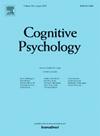通过级联情景抽样的过程来检索过去的经验,为新的决策提供信息
IF 3
2区 心理学
Q1 PSYCHOLOGY
引用次数: 0
摘要
我们可以通过借鉴过去的经验(情景记忆)来指导我们在新的情况下做出决定。虽然有时我们可以通过线索回忆来检索相关的情节,但其他情况可能需要一个记忆搜索的过程。但是这种搜索背后的机制是什么呢?在这项工作中,我们综合了关于情景记忆的存储和检索的六个关键原则,并在这些原则的基础上提出了一种认知机制,该机制允许通过级联回忆过程检索相关的过去经验。在这个过程中,观察刺激会触发对过去事件的提示回忆。如果该内存不能提供足够的信息来保证决策,那么它接下来将恢复内存的所有组成特性。然后,这些特征形成输入,在随后的回忆步骤中采样额外的记忆,这反过来又恢复了自己的特征,以此类推。这个过程一直持续,直到检索到合适的过去经验。我们通过三个参与者与不熟悉的刺激进行互动的在线实验,为这一级联过程的关键预测提供了经验支持。结果表明,被试对相似的过去经历依赖于线索回忆(实验1),当线索回忆不具有信息性时依赖于间接相关的经历(实验2)。此外,与级联记忆搜索相比,依赖线索回忆的参与者更有可能检索到预测的记忆,而且检索速度更快(实验3)。最后,我们讨论了这种级联回忆过程如何连接几个有影响力的基于记忆的决策模型,并为未来的研究提供了有希望的方向。本文章由计算机程序翻译,如有差异,请以英文原文为准。
Retrieving past experiences to inform novel decisions through a process of cascading episodic sampling
We can guide our decisions in novel situations by drawing on our past experiences (episodic memories). While at times we can retrieve relevant episodes via cued recall, other situations may require a process of memory search. But what mechanisms underlie this search? In this work we synthesize six key principles concerning the storage and retrieval of episodic memories, and build on these principles to propose a cognitive mechanism which allows for the retrieval of relevant past experiences through a process of cascading recall. In this process, observing a stimulus triggers the cued recall of a past event. If this memory does not provide sufficient information to warrant a decision, then it next reinstates all the memory’s constituent features. These features then form the inputs to sample an additional memory in a subsequent recall step, which in turn reinstates its own features and so forth. This process continues until a suitable past experience is retrieved. We provide empirical support for key predictions of this cascading process through three online experiments in which participants interacted with unfamiliar stimuli. The results indicate that participants rely on cued recall of similar past experiences (experiment 1), and on indirectly related experiences when cued recall is not informative (experiment 2). Additionally, participants were substantially more likely to retrieve a predicted memory, and did so faster, when relying on cued recall versus cascadizng memory search (experiment 3). We conclude by discussing how this cascading recall process bridges several influential models of memory-based decision-making, as well as offering promising directions for future research.
求助全文
通过发布文献求助,成功后即可免费获取论文全文。
去求助
来源期刊

Cognitive Psychology
医学-心理学
CiteScore
5.40
自引率
3.80%
发文量
29
审稿时长
50 days
期刊介绍:
Cognitive Psychology is concerned with advances in the study of attention, memory, language processing, perception, problem solving, and thinking. Cognitive Psychology specializes in extensive articles that have a major impact on cognitive theory and provide new theoretical advances.
Research Areas include:
• Artificial intelligence
• Developmental psychology
• Linguistics
• Neurophysiology
• Social psychology.
 求助内容:
求助内容: 应助结果提醒方式:
应助结果提醒方式:


